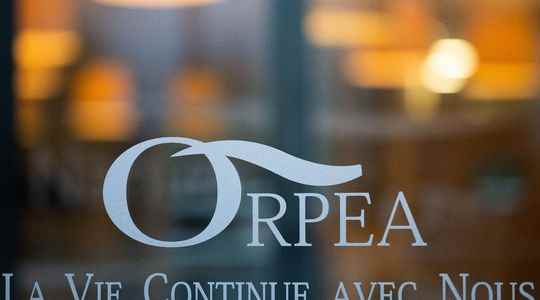“Insufficient” food, “insincere” financial documents, budget surpluses generated on public grants: the government finally published on Tuesday April 5 the administrative investigation report that it commissioned in February on Orpea, and which points the finger at serious dysfunctions within the private Ehpad group.
The report, of more than 500 pages, is available “in complete transparency” on the website of the Ministry of Health and Solidaritywhere it is “accessible to all”, argued on Twitter the Minister Delegate for the Autonomy of the Elderly, Brigitte Bourguignon. “Doubt has no place in this affair”, observed Tuesday the Minister of Health, Olivier Véran, who had entrusted this investigation to the General Inspectorate of Finance (IGF) and that of Social Affairs (IGAS) to shed light on the facts denounced by the journalist Victor Castanet in his book “Les Fossoyeurs”.
On March 26, the government announced that it was taking legal action on the basis of the conclusions of this report, and that it intended to require Orpea to reimburse public grants allegedly diverted from their purposes. But he took refuge behind “business secrecy” to initially refuse to make the report itself public. For their part, the leaders of Orpea said they were in favor of the publication of the document. In the end, passages of the published version of the report are redacted from certain financial amounts and from the names of certain commercial partners.
Insufficient weights
According to the inspectors of the IGAS and the IGF, the “steering” of the establishments of the Orpea group, which are often over-occupied, “gives priority to financial performance” rather than to quality criteria.
The report did not detect any “major anomaly” in the supply circuit for sanitary protection, contrary to what Victor Castanet had noted in “Les Fossoyeurs”. On the other hand, the “grammages” of the meals served to the elderly are “significantly and systematically insufficient”, according to them.
The grammage “does not allow the total protein and calorie intake to be assessed”, replied Orpea, which underlines that its menus are drawn up by a nutritionist and a geriatrician.
“No precise accounting monitoring” of financial surpluses
In terms of accounting, “the mandatory financial documents transmitted to the guardianship by the Ehpad are insincere” and do not respect the regulations, according to the report.
Over the 2017-2020 period, Orpea thus generated a surplus of 20 million euros from the allocations paid by the public authorities to take charge of the care and dependency of its elderly residents. These surpluses “are not subject to any precise accounting monitoring”, so that a part could, “if necessary”, be “distributed to shareholders”, according to the inspectors.
In addition, over the same period, the company irregularly charged 50.6 million euros in expenses to the “care” package, according to IGAS and IGF. More than half of this sum concerns the remuneration of carers “acting” as nursing aides, while they do not have a diploma to exercise this profession. For Orpea, this practice is not part of a “deliberate strategy to optimize public funds” but reflects the “complex reality” of the entire sector, which is facing significant recruitment difficulties.
Of the 50.6 million euros questioned by the authors of the inspection, 46 million were correctly accounted for, maintains the company, which recognizes “errors up to the balance” of 4.6 million euros , i.e. 0.3% of the “care and dependency” allocations received.
The report also confirms what Victor Castanet revealed about “end-of-year discounts” granted to Orpea by its suppliers. The group kept these amounts in its accounts, while the supplies were entirely financed by public money.
These discounts are presented by Orpea as the price paid by suppliers for “services”, but the inspectors consider the content of these services “doubtful”. The report estimates at 13 to 18 million euros over the period 2017-2020 these amounts “unduly increased in the income statement of Orpea”.
The authors of the report question, moreover, the very centralized organization of the group, which leaves very little room for maneuver to the directors of establishments.
Even the reporting to the authorities of “serious adverse events” is filtered by the company’s headquarters, point out the inspectors: Orpea has thus passed over in silence “the presence of a firearm in the room of a deceased” , “a disappearance of jewelry”, or even “a fall giving rise to a complaint”.
